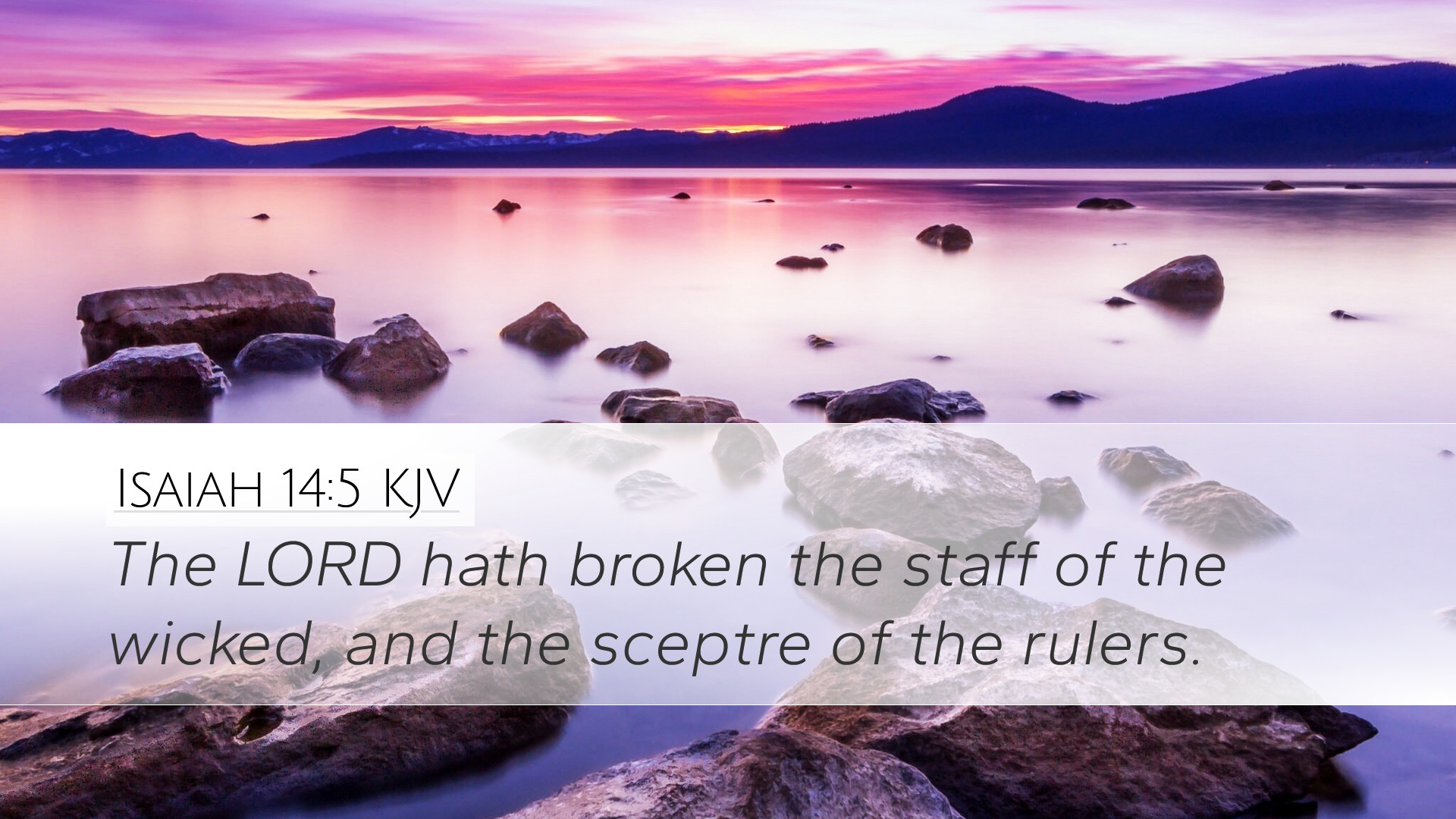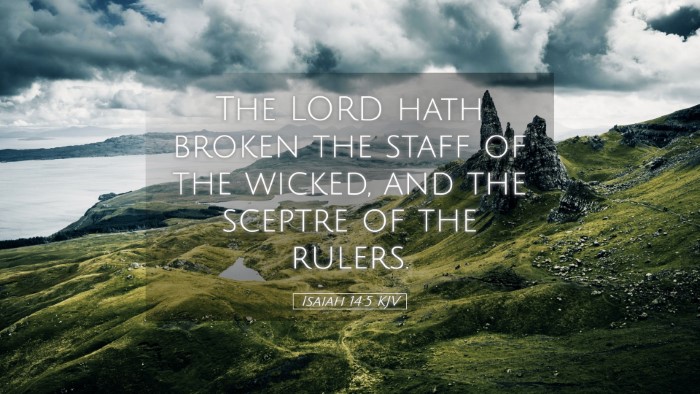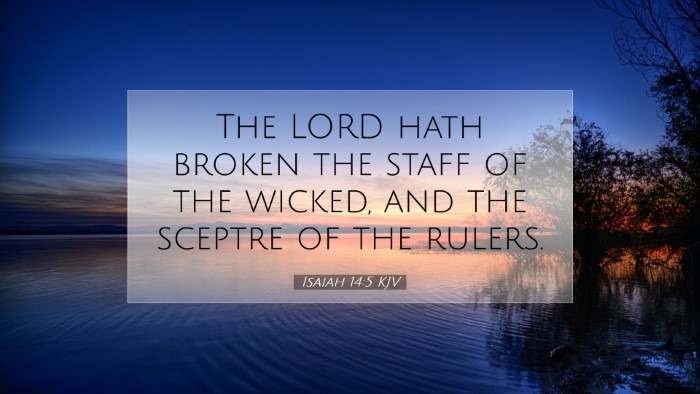Commentary on Isaiah 14:5
Verse: "The Lord has broken the staff of the wicked, the scepter of the rulers."
Introduction
This verse finds its place within the larger context of Isaiah 14, which serves as a prophetic denunciation of the king of Babylon. It depicts God’s judgment upon a tyrant who has brutally oppressed His people. This particular verse symbolizes divine action against wickedness and establishes the theme of God's ultimate sovereignty over worldly powers. It assures believers that despite current oppressions, God will decisively intervene in history.
Contextual Analysis
Isaiah 14 begins with a promise of comfort for Israel, as God promises to restore and gather His people from their dispersion. This prophecy relies on the judgment against Babylon, which embodies not only a historical reality but also spiritual truths regarding pride, oppression, and the downfall of the wicked.
Breakdown of the Key Elements
- The Lord: The sovereignty of God is emphasized, indicating that any action taken against the rulers of the earth is initiated by God Himself.
- Broken: This term indicates a serious and definitive judgment. The "breaking" signifies total defeat and fragmentation of the power once held by the wicked.
- Staff of the wicked: This metaphor illustrates the authority and strength of the oppressors. A staff is a symbol of power and guidance, thus its breaking signifies a complete loss of power.
- The scepter: This represents royal authority and governance. The scepter’s breaking signifies the destruction of the ruling powers and their influence.
- Rulers: This term broadens the scope of the judgment, indicating that God cares not only for the nation of Israel but also addresses tyranny and corruption in leadership universally.
Theological Insights
From a theological perspective, Isaiah 14:5 reveals God's ultimate authority over human rulers. Matthew Henry emphasizes that the God who breaks the staff of the wicked is the same one who protects and rewards the righteous. This verse serves to remind the faithful that earthly powers, no matter how formidable, are not outside God's dominion.
Albert Barnes notes that this verse not only points to historical fulfillment in the fall of Babylon but also serves as a typology for future oppressive regimes. He argues that God’s providence will intervene during times of injustice. The assurance here is universal—God’s justice will prevail against every oppressive force, ultimately revealing His glory.
Adam Clarke elaborates on the lasting implications of this verse, stating that it presents an eternal truth regarding the downfall of the unjust and prideful. Clarke posits that God has a purpose, even in the most rebellious hearts of men, and through great upheaval, He ultimately will establish righteousness.
Practical Applications
This verse can provide great comfort for congregants enduring hardship or oppressive circumstances. It reinforces the belief that God is aware of the injustices faced and is actively working to dismantle the power structures that perpetuate evil. Here are some applications for both individual and corporate life:
- Encouragement in Trials: When facing opposition or injustice, believers can take solace in the fact that God is sovereign and will execute judgment.
- Hope for Justice: This verse serves as a rallying cry for those advocating social justice, reminding them that ultimate justice is found in God’s character.
- Accountability of Leaders: It should remind leaders in various spheres of life (church, government, business) to exercise their power with integrity and humility, aware that they will be held accountable by God.
Conclusion
Isaiah 14:5 encapsulates profound truths about God’s justice and the certainty of His intervention in human affairs. The finality of His actions against the wicked serves both as a warning to oppressors and a comfort to the oppressed. Through various public domain commentaries, we discern that this verse resounds with the message that God reigns supreme and that the downfall of the wicked is assured. It reinforces the temporal yet transient nature of worldly power contrasted with the lasting authority of the Almighty God throughout history and into eternity.


